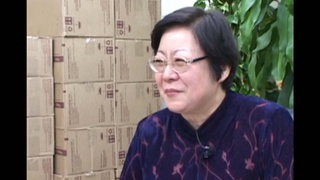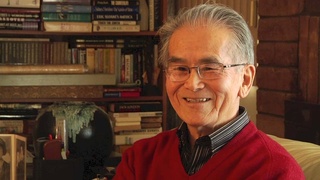Entrevistas
Advice from his mother
She said there are two things about life that she taught me from her background and he culture. One was about – see she had four boys, and she was without a man, and yet she had character, I felt. She said, “One thing that you remember, is that you have to ‘gambate,’ ‘gaman,’ G-A-M-A-N,” and I said, “what does that mean?” she said, “you just have to kind of hang in there,” The best way I could describe that would be to "suck it up", with a hope for a better tomorrow. That was one concept that was very helpful to me. So that no matter how hard things were, you hang in there and persevere, and hope that a better tomorrow will come. That’s one.
The second thing that remember, she said, “Nobody makes it by themselves.” The word, “Giri,” G-I-R-I, she told me about “giri,” or maybe “on,” but I think “giri” is a little more generic and broader for me. She said that somebody help me out, will help me along the way, in society, therefore, when I have the opportunity to help someone else, I should do that, that is “giri.” And she never let me forget that. Said, “don’t ever forget the people that helped you,” and a lot of people did help me. So my life took on the philosophy of being helpful to others as I could, as I kept going. So when I reflect upon my life, that has meant a lot to me, because it did tell me how my life should turn out.
Fecha: March 4, 2005
Zona: California, US
Entrevista: Florence Ochi, Art Hansen, Yoko Nishimura
País: Watase Media Arts Center, Japanese American National Museum






